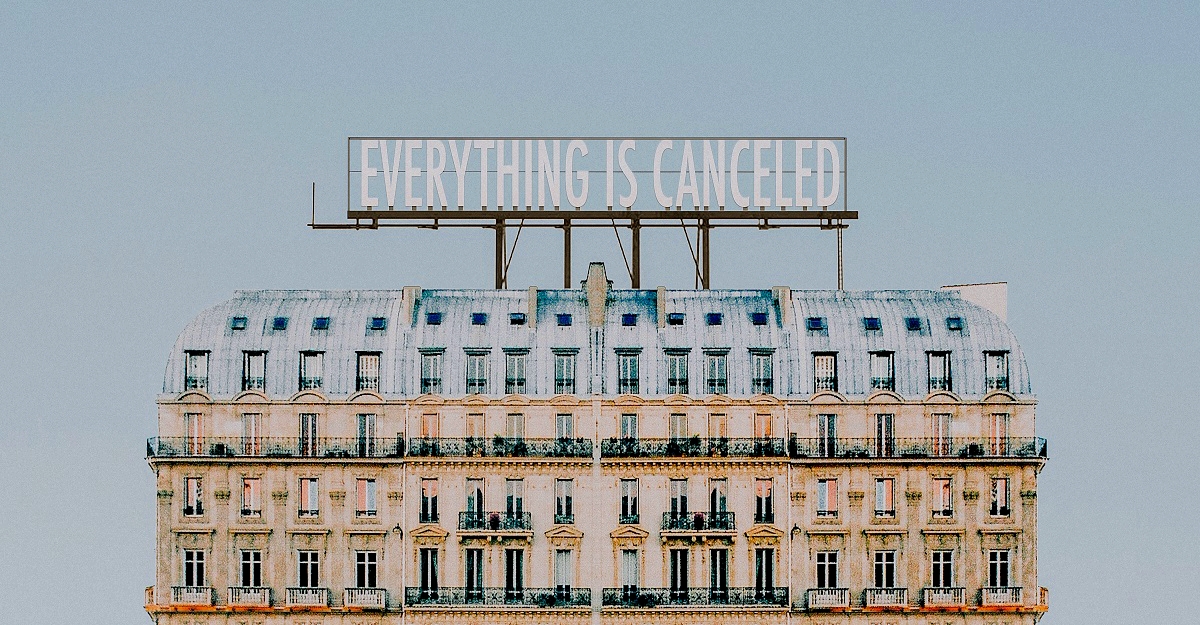Poll Shows Most Americans Support Cancel Culture As Long as You Don’t Call it Cancel Culture

Jeffrey Czum/Pixels
On the heels of several “cancel culture” news cycles fed by the infamous “Harper’s Letter,” the public resignation of Bari Weiss, and President Donald Trump, Morning Consult and YouGov did a deep polling dive on the phenomenon that people don’t even agree exists. The results were fascinating.
It’s been two weeks since the publication of what has become known simply as “The Letter” among the very online media set, a lengthy statement of grievance against what others describe as “cancel culture” that created bitter controversy because of the views of some of its signatories.
There was also a lengthy response letter that, among other things, took issue with the examples of canceling that were hinted at in the original letter and made the case for more insidious and longstanding forms of silencing than online shaming.
One of the Harper’s signatories, Bari Weiss, then resigned from her position at The New York Times in blistering and public fashion, claiming she’d been bullied out of her job by colleagues.
The Trumps Ivanka and Donald also contributed to the din, the former by decrying the phenomenon when she posed with a can of Goya beans, and the latter when he defended the Confederacy from it.
Despite the racket over “cancel culture,” the Politico/Morning Consult poll found a good chunk of Americans — about a third — aren’t familiar with the phenomenon, which the poll described as “withdrawing support from public figures and companies after they have done or said something considered objectionable or offensive, often done through social media in the form of group shaming.”
An overwhelming 60 percent said they have never “participated” in cancel culture, which the pollsters defined as “including sharing your dislike of a public figure or company on social media because of something objectionable or offensive they have done.”
When asked if they approve of “cancel culture,” a clearer picture seemed to emerge, with disapprovers (44%) outnumbering approvers (32%) by a significant margin, and only 24 percent not expressing an opinion either way. One of the sharpest divides was along racial lines, with 42 percent of Black Americans approving and 28 percent disapproving, versus 30 percent approval among whites and 47 percent disapproval.
These results were fairly consistent along related questions, like whether “cancel culture” has “gone too far,” and whether it has a positive or negative impact on society. While not a majority, many more Americans appear to dislike “cancel culture” than like it.
But here’s where it gets interesting, because the pollsters also asked respondents to choose which of two statements most closely reflects their own opinion. The choices were:
There should not be social consequences for expressing unpopular opinions in public, even those that are deeply offensive to other people because free speech is protected
Even though free speech is protected, people should expect social consequences for expressing unpopular opinions in public, even those that are deeply offensive to other people
The pro-consequences crowd crushed the no-consequences crowd 53 percent to 31 percent.
Why the difference? It’s difficult to say, but one possibility appears to be that 40 percent of people are comfortable with sharing their “dislike of a public figure or company on social media because of something objectionable or offensive they have done,” and an additional 13 percent are comfortable with them doing that, but not as part of a group?
Or it could be that the term “cancel culture” itself has a negative connotation that “social consequences” does not.
The poll had a margin of error of +/- two percent, and was taken from a national sample of 1991 registered voters. You can read the full results here.
Editor’s note: The author of this article is a signatory to the response letter, but did not contribute to its composition.





Comments
↓ Scroll down for comments ↓